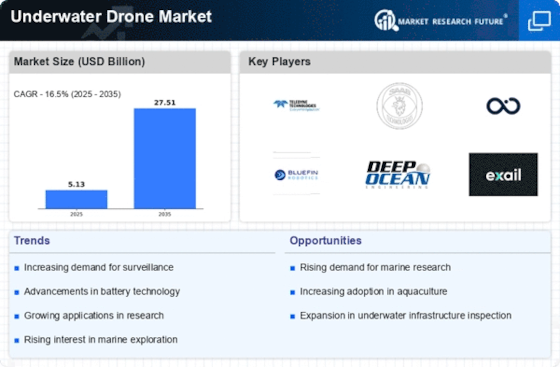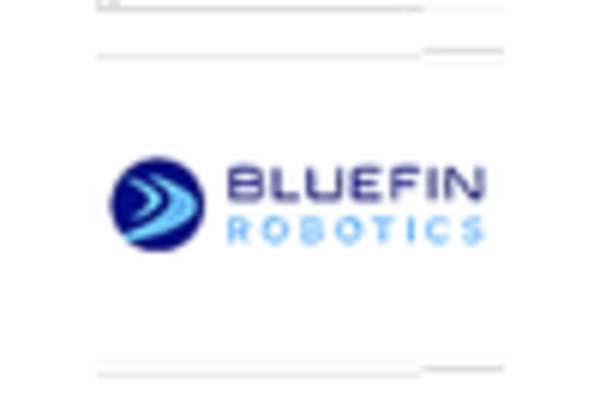Market Share
Underwater Drone Market Share Analysis
Over the past decade, warfare has undergone significant changes, shifting from a focus on weapons to a greater emphasis on technology. Advanced technology plays a crucial role in the success of naval missions by improving situational awareness and minimizing casualties. Defense authorities worldwide are prioritizing the acquisition of various technologies, including communication devices, navigation tools, upgraded weapon sights, and unmanned systems. Remotely Operated Vehicles (ROVs) are among these technologies. Naval forces use ROVs for tasks such as hull inspections, explosive ordnance disposal, recovery and rescue missions, and surveying for enemy divers. Manufacturers are working on developing compact, lightweight ROVs with increased depth capabilities to enhance naval operation efficiency. Improved situational awareness, facilitated by ROVs with multiple sensors like radar systems and cameras, allows operators to respond effectively in dynamic situations and detect potential threats early on. The demand for advanced technologies like ROVs, aimed at improving situational awareness and naval force efficiency, presents lucrative opportunities for market players in the foreseeable future.
The evolving nature of warfare demands cutting-edge technologies, and ROVs play a pivotal role in modern naval strategies. These versatile underwater robots are integral for critical tasks like hull inspections and explosive ordnance disposal, contributing to heightened mission success and reduced risks. The focus on developing more advanced, compact, and deeper-reaching ROVs underscores the commitment to enhancing naval operational efficiency. With their diverse sensors, including radar systems and cameras, ROVs significantly improve situational awareness for early threat detection. The continual pursuit of advanced technologies, exemplified by ROVs, remains essential for strengthening naval capabilities and responding effectively to evolving security challenges.
As the landscape of warfare undergoes technological transformations, the pivotal role of remotely operated vehicles (ROVs) becomes even more pronounced. These sophisticated underwater robots contribute significantly to naval operations, from hull inspections to explosive ordnance disposal, enabling heightened efficiency and minimizing risks. The ongoing efforts to develop advanced, compact, and deeper-reaching ROVs underscore their crucial role in modern defense strategies. Equipped with diverse sensors like radar systems and cameras, ROVs enhance situational awareness, ensuring early threat detection. The continuous pursuit of cutting-edge technologies, exemplified by ROVs, remains paramount for fortifying naval capabilities and effectively addressing evolving security challenges.


















Leave a Comment